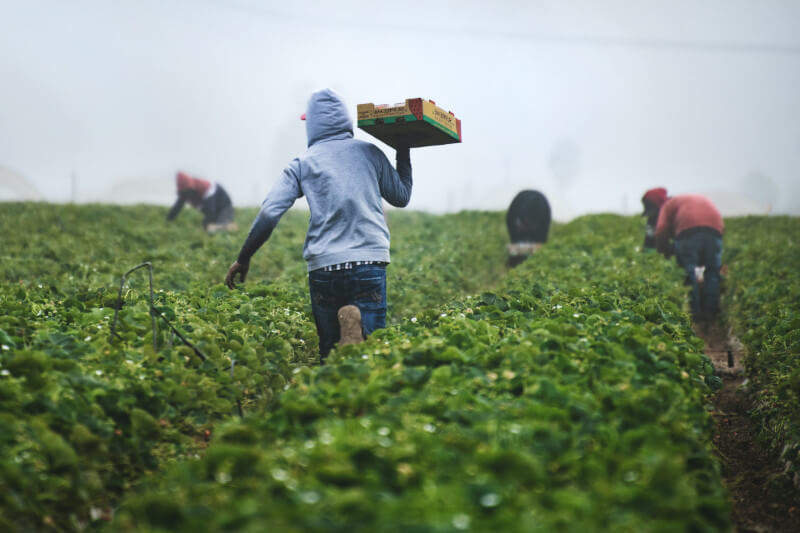Since 2019/20, South African farmers have had a string of exceptionally good growing seasons. Gross value added in the industry increased by 14.9% in 2020, 8.8% in 2021, and only 0.3% in 2022. Good weather had a major role in this happening.
There’s a good chance that the industry as a whole will expand substantially this season, while certain sub-sectors may see more or less expansion. There are already signs of promising harvests in several parts of the country. Since a weaker rand makes South African goods more competitively priced on the global market, export performance is expected to be strong.
However, the industry is still falling short of its promise. Despite their gains, black farmers have been unable to fully integrate into commercial value chains due to several obstacles.
Increasing power outages are the first issue brought up. Energy is crucial in the agricultural industry. For instance, according to a recent study conducted by the Bureau for Food and Agricultural Policy, almost one-third of farm income in South Africa is directly tied to irrigation, which in turn requires power.
This, however, is only one of several obstacles. There are obstacles to efficiency and effectiveness due to deteriorating roads, a failing water system, and rising crime rates.
These concerns are not new. They have previously been reported. However, they have deteriorated. They pose a problem for both industrial farms and family-run farms. Black farmers who are just starting or who have fewer resources to begin with are particularly vulnerable.
These problems are a reflection of the ripple impact of poor governance in South Africa. It’s a problem for everyone, but farmers especially because their livelihoods depend on infrastructure like roads, water, and electricity. There has been a lack of upkeep and modernization of agriculturally useful infrastructure on the part of provincial and local governments.
The long-term effects of this disregard are probably going to be worsening economic conditions and fewer job possibilities in rural areas. Small-town and rural region economies rely heavily on farming and agriculture. Investing in infrastructure might set off a domino effect of private sector investment, which would boost the economy.
Problems Encountered by Farmers
A recent occurrence in the province of Eastern Cape exemplifies the effect that inadequate roads have on farmers. Due to the poor condition of the roads, it was difficult for dairy farmers in the Ncorha area to obtain farm additives, feeds, and diesel. And they were unable to get their goods to market.
South Africa’s Chris Hani District Municipality has a small area called Ncorha. The agricultural sector, especially the dairy industry, is crucial to the economy. About a third of all the milk produced in South Africa comes from the Eastern Cape.
The Eastern Cape isn’t the only place with shoddy infrastructure. Major agricultural provinces like the Free State, North West, Limpopo, and KwaZulu-Natal all have terrible road conditions in their rural towns due to a lack of maintenance.
As rail transport has experienced difficulties throughout the years in South Africa, more than two-thirds of agricultural produce is currently delivered by roads. Agricultural commodities, especially grains, are no longer transported by rail to the same extent as they were twenty years ago.

Due to the inadequate road system, some farmers are now footing the bill for road repairs. The increased cost of doing business has prevented them from fully benefiting from the increased agricultural output. When cities waste money on infrastructure, farmers have to step in. Numerous reports by the Auditor General have provided specifics on this.
Many agricultural firms and farmers have pointed to water scarcity as a significant issue. The upkeep of water purification and storage facilities is crucial. In certain communities, agribusinesses have stepped up to maintain the water system. Again, this diverts resources from private companies to government programmes that should be funded by local governments.
Corruption and criminal activity are on the rise in the agricultural industry as well as among farmers. Due to the prevalence of crime in rural South Africa, commercial farming enterprises have incurred additional security costs over the years. All farmers feel the effects of theft, but new entrants who lack the financial resources to make investments in security and technological solutions are particularly badly hit. Once again, the need to increase security forces a diversion of funds from other, more useful government programmes.
Reasons Why a Robust Agricultural Sector is Critical
In the initial quarter of 2023, the rate of joblessness in South Africa was a little under 33%. Poor economic conditions have a disproportionately negative impact on rural areas.
All economic sectors need to be operating at peak levels for the unemployment crisis to be resolved, but the primary sectors that can absorb even the least trained workforce are particularly important. Some examples of these industries include agriculture, agribusiness, and agro-processing.
However, these rely on infrastructure improvements and public utilities being reliably provided. These, in turn, are reliant on robust provincial and municipal administrations.
Launched not too long ago, the Agriculture and Agro-processing Master Plan details concrete measures to put into action the goal for agriculture sector development laid out in Chapter Six of the National Development Plan. Administration initiatives to increase agricultural output and address inefficiency inside the Department of Agriculture, Land Reform, and Rural Development are being hampered by the shortcomings of the provincial administration and municipalities.
These Flaws Are Also Hampering President Cyril Ramaphosa’s Economic Strategy for South Africa
The presidency should prioritise fixing the problems caused by ineffective local governments. Millions of people rely on the economic stability of rural towns and communities, which are today struggling. Public-private partnerships are one option for addressing these issues. Different master plans provide blueprints for making this happen, but they require dedication and strong management to be successful.




